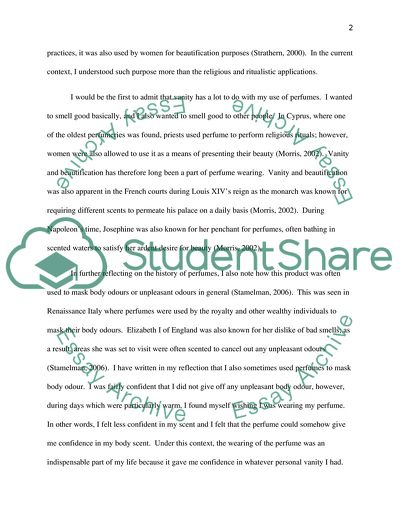Cite this document
(History and Contexts of Perfume Assignment Example | Topics and Well Written Essays - 2000 words, n.d.)
History and Contexts of Perfume Assignment Example | Topics and Well Written Essays - 2000 words. Retrieved from https://studentshare.org/culture/1798923-history-and-contexts-of-perfume
History and Contexts of Perfume Assignment Example | Topics and Well Written Essays - 2000 words. Retrieved from https://studentshare.org/culture/1798923-history-and-contexts-of-perfume
(History and Contexts of Perfume Assignment Example | Topics and Well Written Essays - 2000 Words)
History and Contexts of Perfume Assignment Example | Topics and Well Written Essays - 2000 Words. https://studentshare.org/culture/1798923-history-and-contexts-of-perfume.
History and Contexts of Perfume Assignment Example | Topics and Well Written Essays - 2000 Words. https://studentshare.org/culture/1798923-history-and-contexts-of-perfume.
“History and Contexts of Perfume Assignment Example | Topics and Well Written Essays - 2000 Words”, n.d. https://studentshare.org/culture/1798923-history-and-contexts-of-perfume.


